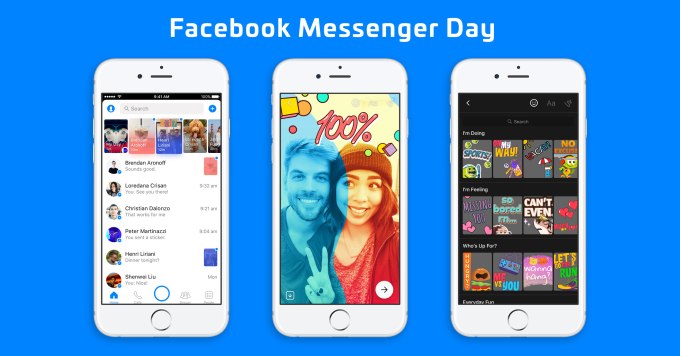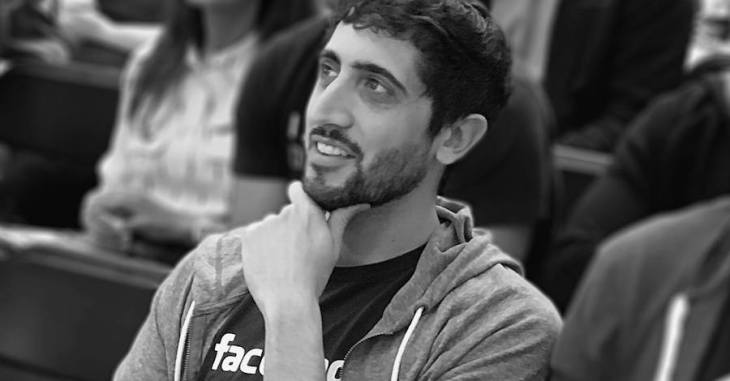Completing almost 8 years at Facebook, Director of Product Management Peter Martinazzi has left the company. His last product, Messenger Day, shipped on Thursday. A Facebook “OG,” Martinazzi was well-liked and respected at the company. He worked with the growth team in some of Facebook’s breakout years before the IPO, and ran all of Messenger product during its modernizing 3.0 redesign in 2013.
Goofy and casual, but with the zeal of a true believer in the mission of connecting people, Martinazzi always struck me as the emblematic Facebook staffer in my several interviews with him over the years. He could articulate lofty philosophy and intention behind social apps, yet drill into the logic behind tiny product decisions.

Teammates celebrate with Peter (bottom left) in 2015
A Facebook spokesperson said about the departure, “Peter is so well-loved; he’s off to travel the world.” That’s understandable after enduring the fast pace of Facebook since 2009. Martinazzi tells me he still loves Facebook, and just had an itch to adventure outside of California.
Facebook’s head of Messenger David Marcus wrote, “When I got to Facebook 2 1/2 years ago, Peter was running all of product for Messenger, and he already had a solid reputation across the company for hardcore execution skills, and amazing product chops . . . Conventional wisdom is that you learn from older people, who’ve had more experience. In this specific case though, I know for a fact I learned more from Peter than he learned from me.”

Martinazzi departs the company at a critical time for Messenger as it seeks to branch out from strict text messaging into visual communication, social media broadcasting, business interaction and e-commerce and become a third-party app platform. Martinazzi helped Messenger reach more than 1 billion users, developing a large lead over other Western messaging apps.
 But that also puts huge pressure on the app as a fundamental utility. The launch of Day and Messenger Camera complicate this, cluttering Messenger’s home screen with a shutter button and a Snapchat Stories clone. Some users have already expressed how they don’t want these features getting in the way of more utilitarian text messaging. Our writer Jon Russell succinctly sums up the case against Messenger Day and the same Snapchatification of WhatsApp with its new Status feature.
But that also puts huge pressure on the app as a fundamental utility. The launch of Day and Messenger Camera complicate this, cluttering Messenger’s home screen with a shutter button and a Snapchat Stories clone. Some users have already expressed how they don’t want these features getting in the way of more utilitarian text messaging. Our writer Jon Russell succinctly sums up the case against Messenger Day and the same Snapchatification of WhatsApp with its new Status feature.
On the other side of the argument is the fact that about 560 million photos are shared on Facebook Messenger every day, and it only just launched its revamped camera in December, and Day this week. People are already exhibiting this behavior, so why not make it easier to share these photos with lots of friends at once? Messenger clearly sees an opportunity to climb toward Snapchat’s 2.5 billion Snaps created per day.
Now the Messenger team will have to react to and iterate on Messenger Day’s launch without Martinazzi. While Facebook eventually brought in more experienced executives like PayPal’s David Marcus and Stan Chudnovsky to run the Messenger unit, Martinazzi exemplified Facebook’s roots. In most companies, that would mean doing things they way they’d been done before. At Facebook, that means being willing to change whatever is necessary to adapt to how people share.
